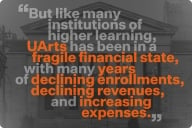You have /5 articles left.
Sign up for a free account or log in.
Nurses, like other medical professionals, vow not to harm those in their care. But the leading national association of nurses is in a nasty (and seemingly never-ending) war of words and lawsuits with a nursing education accreditor that threatens to damage the accreditor and harm thousands of would-be nurses trained by programs the agency oversees.
On Thursday, for the third time in four years, the committee that advises the U.S. education secretary on accreditation will again take up the controversy, and this time the stakes are high. A staff report has urged the National Advisory Committee on Institutional Quality and Integrity (NACIQI) to strip federal recognition from the Accreditation Commission for Education in Nursing, and the panel will decide whether to forward that recommendation to Education Secretary Arne Duncan.
If the agency were to lose its recognition, some of the programs it accredits -- and their students -- would lose their eligibility for federal financial aid.
The reason for the potential revocation: the Education Department staff says the accreditor is not independent enough from the National League for Nursing because the commission cannot change its bylaws without approval from the board of the nursing association, of which it used to be an arm.
That is a problem, the department's report said, because “in the context of NLN's authority granted to it by the agency's bylaws, NLN could legally direct the operation of the ACEN's accreditation business, leading the department to conclude that the agency could not operate in the separate and independent manner required” by federal financial aid laws and rules.
The Nursing Accreditation Landscape
The subject of this article, the Accrediting Commission for Education in Nursing, is one of two accreditors of nursing programs. It accredits all kinds of nursing education programs, with a focus on associate degree and diploma programs offered by community colleges and hospitals.
The other accreditor, the Commission on Collegiate Nursing Education, accredits programs that offer nursing degrees at the baccalaureate and higher level at four-year institutions, and its approval does not come with access to federal financial aid funds.
And now the National League for Nursing is creating its own accrediting arm to compete with the two existing agencies.
The nursing group and the accreditor blame each other for the standoff, in increasingly shrill and accusatory language. Pinpointing the precise motivations for the intransigence is difficult, but money, power and competition are all likely factors.
Nursing educators care less about the reasons for the confounding feud than about its potential implications, which are significant. “It would really be catastrophic for nursing programs like mine to deal with the consequences that would result from all of this,” said Linda Miles, nursing coordinator at Daytona State College in Florida, where a state law mandates that all nursing programs be accredited by one of the two existing nursing accreditors (see box).
While the dispute is specific to nursing education, the issue is a larger one in the realm of accreditation, where questions are often raised -- in teacher education, law and other fields -- about whether trade groups and professional societies exert too much control over the regulatory bodies that are supposed to keep them honest.
20 Years of Tension
The dispute between the nursing organizations has a tortured history.
For decades, through the last half of the 20th century, the National League for Nursing was the primary accreditor of nursing programs, in addition to being the main membership organization for nurses in the United States. When Congress renewed the Higher Education Act in 1992, it required accrediting arms of industry or professional groups (like the nursing association) to be “separate and independent” from those groups, to limit conflicts of interest in which the industry groups might exert undue influence on who is accredited, and how rigorously. Professional associations may also focus too much on promoting the profession, potentially forcing institutions to spend more on expanding programs than is appropriate.
Four years later, in 1996, the Education Department's newly created accreditation advisory panel concluded that the nursing league's accrediting arm violated the separate and independent standard. That triggered a series of steps that were designed to fix the problem -- but, 20 years later, clearly haven't been, in the department's view.
In 1997, the nursing league transferred its accrediting functions to an entity called the National League for Nursing Accrediting Commission, and in 2001, the NLNAC (a precursor to what is now known as ACEN) was incorporated as a separate legal entity. While the arrangement sought to keep the two closely intertwined, giving the NLN numerous powers over the new organization (and making it the “principal member” of the new corporation), the nursing association vowed that it would let the accreditor operate independently.
The two organizations seemed to have reached a satisfactory point during the 2000s, as the federal accreditation panel in 2006 gave NLNAC a clean bill of health for five years, the maximum possible.
But that changed several years ago as the accrediting entity sought to assert its independence from the nursing league. In 2009, the accreditor moved its offices from New York (where it had co-habitated with the NLN) to Atlanta, which triggered lawsuits over the sanctity of the contracts between the organizations. There have been several rulings by New York courts in the case, but the litigation continues.
Meanwhile, the accreditation advisory committee in 2012 questioned whether the arrangement between the two satisfied the federal law's separate and independent definition, and directed the accreditor to alter its bylaws to comply with that definition. The key problem: the accrediting entity's bylaws, as written, gave the National League for Nursing the “sole right” to approve changes to the bylaws.
A report on the meeting said at the time, “Of particular concern to the committee… was on the issue of the degree of 'separateness and independence' of the recognized accreditation commission from the trade association National League for Nursing (NLN). The two entities are embroiled in multiple litigations at this time to resolve/dissolve their relationship. After a discussion that updated the committee on the status of the litigations, in the words of one committee member, '[NACIQI] is not in a position to sort out the legal dispute between NLN, on the one hand, and the accrediting authority, on the other hand, and until that's resolved, nothing more can be done. The agency agrees with the staff, and the two primary readers do as well, that under the current relationship of these entities, there is not compliance with the separate and independent requirement.”
Two years later, in June 2014, NACIQI gave the accrediting commission a year to amend the bylaws and make other changes to bring the agency into compliance. But the staff report released this month noted that “the agency has not provided revised/amended bylaws and remains noncompliant with the requirements of this section,” and “department staff is unaware of any progress between NLN and ACEN to address ACEN’s noncompliance with the separate and independent requirements.”
The two organizations -- with growing vitriol -- say the other is responsible for the conflict.
“The solution -- the only solution -- is that NLN allows ACEN to have control of our bylaws,” Marsal P. Stoll, CEO of the accrediting commission, said in an interview. But “NLN has refused and now our ability to serve as a Title IV gatekeeper and accreditor are in jeopardy,” Stoll and the head of the accreditor's board said in an email to constituents this month.
The nursing league's chief executive, Beverly Malone, says her group is willing to give ACEN control of its bylaws on one condition: that the accreditor also commit to remaining closely linked to the nursing group.
“We are very willing to change their bylaws as long as there's something in those bylaws that assures us of a continued relationship,” Malone said in an interview. “They have been trying to separate from us for some time, but if you look at their articles of incorporation, they are our subsidiary. And we are just very clear that complete separation is something we are not going to accept. Accreditation has been part of what we do for 50 years, and we're not willing to give up that piece.”
ACEN officials assert that the two organizations are already fully separate, by nature of being independent corporations, and that the accreditor expects and wants to retain a strong working relationship with the nursing group. “But we must be able to prove we are independent, and the fact that we need consent from them to change our bylaws demonstrates that we are not independent,” Stoll said.
Michael B. Goldstein, who co-leads the higher education practice group at the Cooley law firm, said that while he was not familiar with the intricate details of the agreement between the two nursing organizations, conflicts like this one are common when there has been a parent/subsidiary relationship between entities. “Each side wants to be free of constraints from the other side,” he said.
He said it was clearly a problem that the accreditor is unable to change its bylaws without the written approval of the nursing league. But he also said that it should be possible to draft language that would continue to give NLN assurances that the accrediting agency “can't just get up and run away” from the parent organization.
Federal officials are growing clearly frustrated by the conflict. The Education Department's staff report notes that “while the [accrediting] agency blames NLN for the impasse, staff cannot verify that this is the case. In any event, whether ACEN’s noncompliance is voluntary or has been forced upon it,” the government has no choice but to terminate the accreditor's recognition, the report asserts.
The report speculates that “rather than coming into compliance, the agency appears to be requesting the [federal government] to find it out of compliance so as to force NLN’s hand or support its legal action in New York…
“While the department was hopeful that NLN and ACEN would be able to come to an agreement in which compliance with the secretary's 'separate and independent' requirements would be accomplished within the time frame allowed under the Higher Education Amendments of 1998, the agency remains out of compliance with the requirements of this section.”
The report did not say, “Can't the two of you stop bickering and resolve this, before you put scores of programs and many students in harm's way?”
But it wouldn't be at all surprising if members of the federal advisory committee said as much tomorrow.









